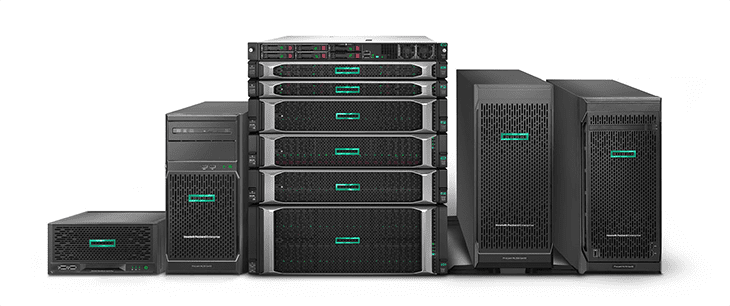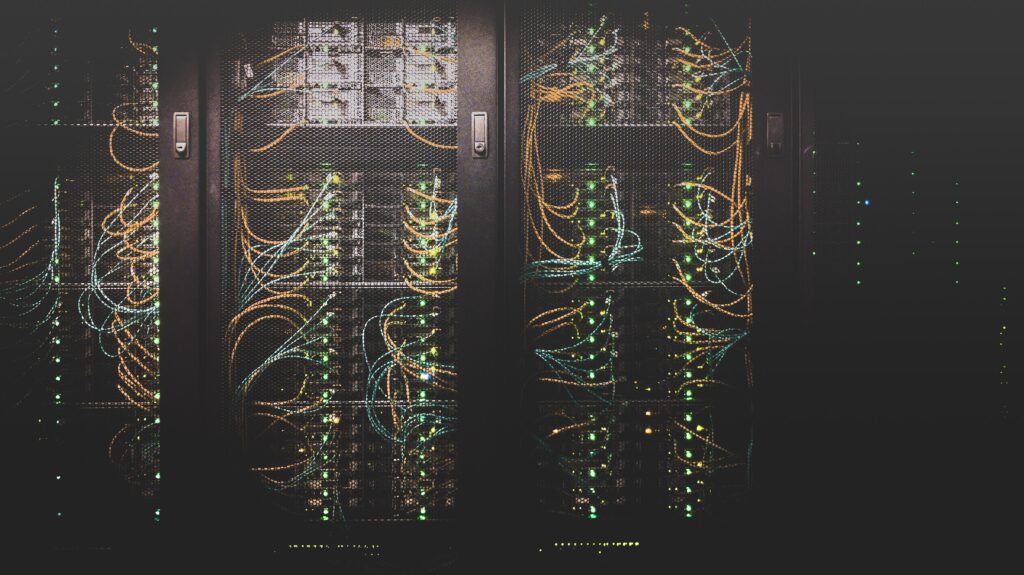In today’s technology-driven world, businesses of all sizes require powerful and reliable servers to manage their operations. Two of the most popular server brands on the market are Dell PowerEdge and HPE ProLiant. In this article, we will compare and contrast these two server lines to help you make an informed decision when choosing a server solution for your organization.

Dell PowerEdge Server
Dell PowerEdge Servers
Overview
Dell PowerEdge servers have been a staple in the server market for decades, offering a wide range of server solutions designed to cater to different business needs. These servers are known for their performance, scalability, and reliability.
Key Features
Scalability
Dell PowerEdge servers come in various form factors, including tower, rack, and blade servers, allowing for seamless scalability as your business grows. The modular design of the servers allows for easy component upgrades, ensuring that your server can meet your future needs.
Performance
Dell PowerEdge servers offer a range of processors, memory, and storage options, enabling you to select the perfect combination for your specific workloads. With support for the latest Intel and AMD processors, these servers deliver excellent performance across various applications.
Management Tools
Dell’s OpenManage suite of tools simplifies server management, allowing you to monitor, update, and maintain your servers remotely. These tools integrate with third-party management software, making it easy to incorporate Dell servers into your existing infrastructure.
Security Features
Security is a priority in Dell PowerEdge servers, with features such as TPM 2.0, secure boot, and system lockdown capabilities. Additionally, Dell offers advanced security options, including intrusion detection and data encryption, to protect your sensitive information.

HPE Proliant Server
HPE ProLiant Servers
Overview
HPE ProLiant servers have been an industry leader for over 25 years, offering a wide range of server solutions tailored to various business requirements. These servers are known for their reliability, performance, and ease of management.
Key Features
Scalability
Like Dell PowerEdge servers, HPE ProLiant servers are available in tower, rack, and blade form factors, allowing for seamless scalability as your business expands. The modular architecture of these servers enables easy component upgrades, ensuring your server remains up-to-date.
Performance
HPE ProLiant servers support the latest Intel and AMD processors, providing top-notch performance for various workloads. With numerous memory and storage options, you can customize your server to meet your specific needs.
Management Tools
HPE’s Integrated Lights Out (iLO) management technology simplifies server management by allowing you to monitor, update, and maintain your servers remotely. iLO integrates with third-party management software, ensuring seamless integration with your existing infrastructure.
Security Features
HPE ProLiant servers prioritize security with features such as TPM 2.0, secure boot, and firmware protection. HPE also offers advanced security options, including intrusion detection and data encryption, to safeguard your sensitive information.
Comparison
Scalability
Both Dell PowerEdge and HPE ProLiant servers provide excellent scalability, with a range of form factors and modular designs that enable easy component upgrades. No clear winner here, as both server lines offer similar scalability options.
Performance
Performance-wise, both server lines support the latest Intel and AMD processors, ensuring top-notch performance for various workloads. The choice between Dell PowerEdge and HPE ProLiant servers comes down to personal preference and specific use cases, as both offer a wide array of customization options.
Management Tools
Dell OpenManage and HPE iLO management technologies simplify server management, allowing for remote monitoring, updates, and maintenance. Both management tools integrate with third-party software, making it easy to incorporate either server brand into your existing infrastructure.
Security Features
Both Dell PowerEdge and HPE ProLiant servers prioritize security with features such as TPM 2.0, secure boot, and firmware protection. Additionally, both brands offer advanced security options like intrusion detection and data encryption. Once again, there is no clear winner, as both server lines provide similar security features.
Final Thoughts
When comparing Dell PowerEdge and HPE ProLiant servers, it’s evident that both brands offer powerful, scalable, and secure server solutions. The choice between the two ultimately comes down to personal preference, specific use cases, and compatibility with your existing infrastructure. Both server lines offer similar features and capabilities, making them excellent choices for any organization. Both servers are the popular choice for most IT Server Support Specialists.
Dell PowerEdge 14G Rack Servers vs. HPE ProLiant Gen10 Rack Servers
| Socket Type | Dell PowerEdge 14G Rack Servers | HPE ProLiant Gen 10G Rack Servers |
|---|---|---|
| 4-Socket | R940 | DL580 |
| R840 | DL560 | |
| 2-Socket | R740xd | DL380 |
| R740 | DL380 | |
| R640 | DL360 | |
| R540 | DL180 | |
| R440 | DL160 | |
| 1-Socket | R340 | DL20 |
| R240 | DL20 | |
| Socket Type | Dell PowerEdge 14G Rack Servers | HPE ProLiant Gen 10G Rack Servers |

FAQs
Dell PowerEdge Server and HPE Proliant FAQs
- What is the main difference between Dell server and HPE server? There is no significant difference between the two server lines in terms of performance, scalability, management tools, and security features. The choice between the two depends on personal preference, specific use cases, and compatibility with your existing infrastructure.
- Are Dell PowerEdge and HPE ProLiant servers compatible with third-party management software? Yes, both Dell OpenManage and HPE iLO management tools integrate with third-party management software, allowing for seamless integration with your existing infrastructure.
- Can I upgrade components in Dell PowerEdge and HPE ProLiant servers as my business grows? Yes, both server lines offer a modular architecture that enables easy component upgrades, ensuring your server remains up-to-date as your business expands.
- Which server line offers better performance: Dell PowerEdge or HPE ProLiant? Both server lines support the latest Intel and AMD processors, providing top-notch performance for various workloads. The choice between the two depends on personal preference and specific use cases, as both offer a wide array of customization options.
- How do Dell PowerEdge and HPE ProLiant servers ensure data security? Both server lines prioritize security with features such as TPM 2.0, secure boot, and firmware protection. They also offer advanced security options like intrusion detection and data encryption to safeguard your sensitive information.
If you liked this article, then subscribe to our YouTube Channel or connect us on Facebook, LinkedIn, Twitter and Instagram.
Latest Posts
- Singapore is investing ahead in 10G Internet Nationwide Broadband Network (NBN)
- Unleashing Your Business Potential with CTO As A Service
- Premium IT Services Singapore | Efficient Solutions
- Premium Wireless Support Services in Singapore
- CTO vs CIO: Understanding the Differences and Roles
- Professional Computer Support Services Near You
Cloud Tags
advanced threat protection AI IT Support Artificial Intelligence Augmented Reality automated processes automation business callcenterservices consulting cost savings Cybersecurity Digital Marketing Digital Transformation fortinet FortiGate 400F Fortinet Security Fabric Fortinet Threat Intelligence Service help desk humanresources increased efficiency Influencer Marketing Intrusion Detection System intrusion prevention system it it asset management it disposal services IT Operations it services it support IT Support Community IT Support Company it support professionals IT Support Qualification IT Support Skills IT Support Soft Skills it support thru automation IT Support Training network security Next Generation Firewall NFW outsourcing Palo Alto Firewall paynow pay now ransomware remotework routine IT tasks scam security seo Social Commerce software Successful Career in IT Support technology Video Marketing virtualassistants Voice Search Optimization wordpress hosting wordpress maintenance wordpress security mistakes wordpress website zero-day vulnerabilities




